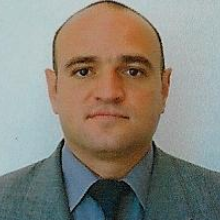International Journal of Intelligent Systems and Applications (IJISA)
IJISA Vol. 10, No. 7, 8 Jul. 2018
Cover page and Table of Contents: PDF (size: 1208KB)
An Effectiveness Evaluation of Information Technology of Gene Expression Profiles Processing for Gene Networks Reconstruction
Full Text (PDF, 1208KB), PP.1-10
Views: 0 Downloads: 0
Author(s)
Index Terms
Gene expression profiles, Filtering, Reducing, Clustering, Biclustering, Gene network reconstruction, Gene network validation
Abstract
The paper presents the research results concerning an effectiveness evaluation of information technology of gene expression profiles processing for purpose of gene regulatory networks reconstruction. The information technology is presented as a structural block-chart of step-by-step stages of the studied data processing. The DNA microchips of patients, who were investigated on different types of cancer, were used as experimental data. The optimal parameters of data processing algorithm at appropriate stage of this process implementation by quantity criteria of data processing quality were determined during simulation. Validation of the reconstructed gene networks was performed with the use of ROC-analysis by comparison of character of genes interconnection in both the basic network and networks reconstructed based on the obtained biclusters.
Cite This Paper
Sergii Babichev, Maksym Korobchynskyi, Serhii Mieshkov, Oleksandr Korchomnyi, "An Effectiveness Evaluation of Information Technology of Gene Expression Profiles Processing for Gene Networks Reconstruction", International Journal of Intelligent Systems and Applications(IJISA), Vol.10, No.7, pp.1-10, 2018. DOI:10.5815/ijisa.2018.07.01
Reference
[1]X. Zhang, Z. Zhou, Y. Jiao, Y. Niu and Y. Wang, “A visual cryptography scheme-based DNA microarrays”, International Journal of Performability Engineering, vol. 14(2), pp. 334–340, 2018.
[2]Shukla, S., Agarwal, A.K., Lakhmani, A., “MICROCHIPS: A leading innovation in medicine”, Proceedings of the 10th INDIACom; 2016 3rd International Conference on Computing for Sustainable Global Development, INDIACom, art. no. 7724256, pp. 205-210, 2016.
[3]X. Wu, B. Yang, I. Udo-Inyang, S. Ji, D. Ozog, L. Zhou and Q.-S. Mi, “Research Techniques Made Simple: Single-Cell RNA Sequencing and its Applications in Dermatology”, Journal of Investigative Dermatology, vol. 138(5), pp. 1004–1009, 2018.
[4]Wang, L.Y., Guo, J., Cao, W., Zhang, M., He, J., Li, Z., “Integrated sequencing of exome and mRNA of large-sized single cells”, Scientific Reports, vol. 8 (1), art. no. 384, 2018.
[5]P. D‘haeseleer, X. Wen, S. Fuhrman, R. Somogyi, “Linear modeling of mRNA expression levels during CNS development and injury”, Pacific Symposium on Biocomputing, pp. 41–52, 1999.
[6]S. Liang, S. Fuhrman, R. Somogyi, R. Reveal, “A general reverse engineering algorithm for inference of genetic network architectures”, Pacific Symposium on Biocomputing, pp. 18–29, 1998.
[7]N. Friedman, M. Linial, I. Nachman, D. Pe'er, “Using Bayesian networks to analyse expression data”, Journal of Computational Biology, 7(3–4), pp. 601–620, 2000.
[8]T. Chen, H.L. He, G.M. Church, “Modeling gene expression with differential equations”, Proceedings of the Pacific Symposium on Biocomputing, pp. 29–40, 1999.
[9]K.-C. Wong, Y. Li, Z. Zhang, “Unsupervised learning in genome informatics”, Unsupervised Learning Algorithms, pp. 405–448, 2016.
[10]F. Emmert-Streib, M. Dehmer, B. Haibe-Kains, “Gene regulatory networks and their applications: understanding biological and medical problems in terms of networks”, Frontiers in cell and developmental biology, pp. 1–7, 2014.
[11]Zheng, G., Huang, T., “The reconstruction and analysis of gene regulatory networks”, Methods in Molecular Biology, vol. 1754, pp. 137-154, 2018.
[12]Wu, H.C., Zhang, L., Chan, S.C., “Reconstruction of gene regulatory networks from short time series high throughput data: Review and new findings”, International Conference on Digital Signal Processing (DSP), no. 6900761, pp. 733-738, 2014.
[13]K. Wang, L. Zhang, X. Liu, “A review of gene and isoform expression analysis across multiple experimental platforms”, Chinese Journal of Biomedical Engineering, 36(2), pp. 211–218, 2017.
[14]B. Pontes, R. Giráldez, J.S. Aguilar-Ruiz, “Biclustering on expression data: A review”, Journal of Biomedical Informatics, vol. 57, pp. 163–180, 2015.
[15]Rocha, O., Mendes, R., “JBiclustGE: Java API with unified biclustering algorithms for gene expression data analysis”, Knowledge-Based Systems, vol. 155, pp. 83-87, 2018.
[16]Puleo, G.J., Milenkovic, O., “Correlation Clustering and Biclustering with Locally Bounded Errors”, IEEE Transactions on Information Theory, 64(6), pp. 4105-4119, 2018.
[17]S. Babichev, V. Lytvynenko, V. Osypenko, M. Korobchinskyi, M. Voronenko, “Comparison analysis of biclustering algorithms with the use of artificial data and gene expression profiles”, Proceedings of 2018 IEEE 38th International Conference on Electronics and Nanotechnology (ELNANO), Kiev, pp. 298–304, 2018.
[18]S. Babichev, M.A. Taif, V. Lytvynenko, M. Korobchynskyi, “Objective clustering inductive technology of gene expression sequences features”, Communication in Computer and Information Science, vol. 716, pp. 359–372, 2017.
[19]S. Babichev, V. Lytvynenko, J. Skvor, J. Fiser, “Model of the objective clustering inductive technology of gene expression profiles based on SOTA and DBSCAN clustering algorithms”, Advances in Intelligent Systems and Computing, vol. 689, pp. 21–39, 2018.
[20]S. Babichev, M. Korobchynskyi, O. Lahodynskyi, O. Korchomnyi, B. Basanets, V. Borynskyi, “Development of a technique for the reconstruction and validation of gene network models based on gene expression profiles”, Eastern European Journal of Enterprise Technologies, vol. 1(4-91), pp. 19-32, 2018.
[21]J. Hausser and K. Strimmer, “Entropy inference and the james-stein estimator with application to nonlinear gene association networks”, Journal of Machine Learning Research, vol. 10, pp.1469–1484, 2009.
[22]S. Babichev, J. Škvor, J. Fišer, V. Lytvynenko, “Technology of gene expression profiles filtering based on wavelet analysis”, International Journal of Intelligent Systems and Applications, vol. 10(4), pp. 1–7, 2018.
[23]Ye.V. Bodyanskiy, A.K. Tyshchenko, A.A. Deineko, “An evolving radial basis neural network with adaptive learning of its parameters and architecture”, Automatic Control and Computer Sciences, vol. 49, iss. 5, pp. 255-260, 2015.
[24]Zh. Hu, Ye.V. Bodyanskiy, O.K. Tyshchenko, “A deep cascade neuro-fuzzy system for high-dimensional online fuzzy clustering”,Proceedings of the 2016 IEEE 1st International Conference on Data Stream Mining and Processing (DSMP 2016), Lviv, Ukraine, pp. 318-322, 2016.
[25]Zh. Hu, Ye.V. Bodyanskiy, O.K. Tyshchenko, “A cascade deep neuro-fuzzy system for high-dimensional online possibilistic fuzzy clustering”, Proceedings of the 11th International Scientific and Technical Conference on Computer Sciences and Information Technologies, CSIT 2016, Lviv, Ukraine, pp. 119-122, 2016.
[26]Ye.V. Bodyanskiy, O.K. Tyshchenko, D.S. Kopaliani, “An Evolving Connectionist System for Data Stream Fuzzy Clustering and Its Online Learning”, Neurocomputing, vol. 262, pp.41-56, 2017.
[27]S. Babichev, V. Lytvynenko, A. Gozhyi, M. Korobchinskyi, “Fuzzy model of gene expression profiles reducing based on the complex use of statistical criteria and Shannon entropy”, Advances in Intelligent Systems and Computing, vol. 754, pp. 567–576, 2018.
[28]J. Sabates-Bellver, L.G. Van der Flier, M. de Palo, E. Cattaneo, et al., “Transcriptome profile of human colorectal adenomas”, Mol. Cancer. Res., vol. 5(12), pp. 1263–1275, 2007.
[29]T.A. Wallace, R.L. Prueitt, M. Yi, T.M. Howe, et al., “Tumor immunobiological differences in prostate cancer between African-American and European-American men”, Cancer Res., vol. 68(3), pp. 927–936, 2008.
[30]A. Sanchez-Palencia, M. Gomez-Morales, J.A. Gomez-Capilla, V. Pedraza, et al., “Gene expression profiling reveals novel biomarkers in nonsmall cell lung cancer”, Int. J. Cancer, vol. 129(2), pp. 355–364, 2011.



